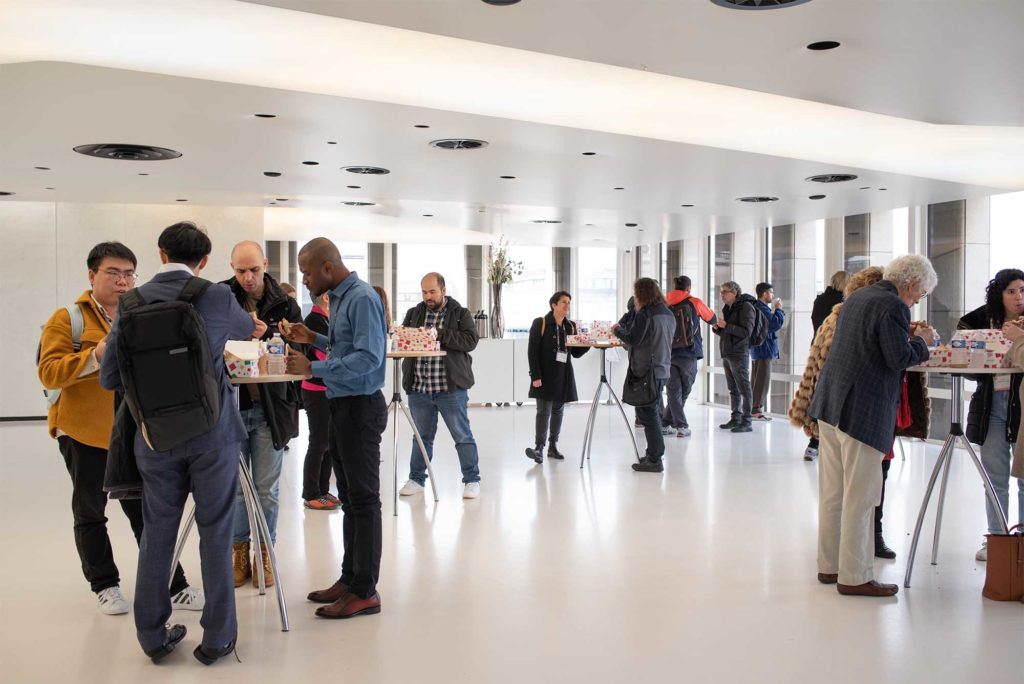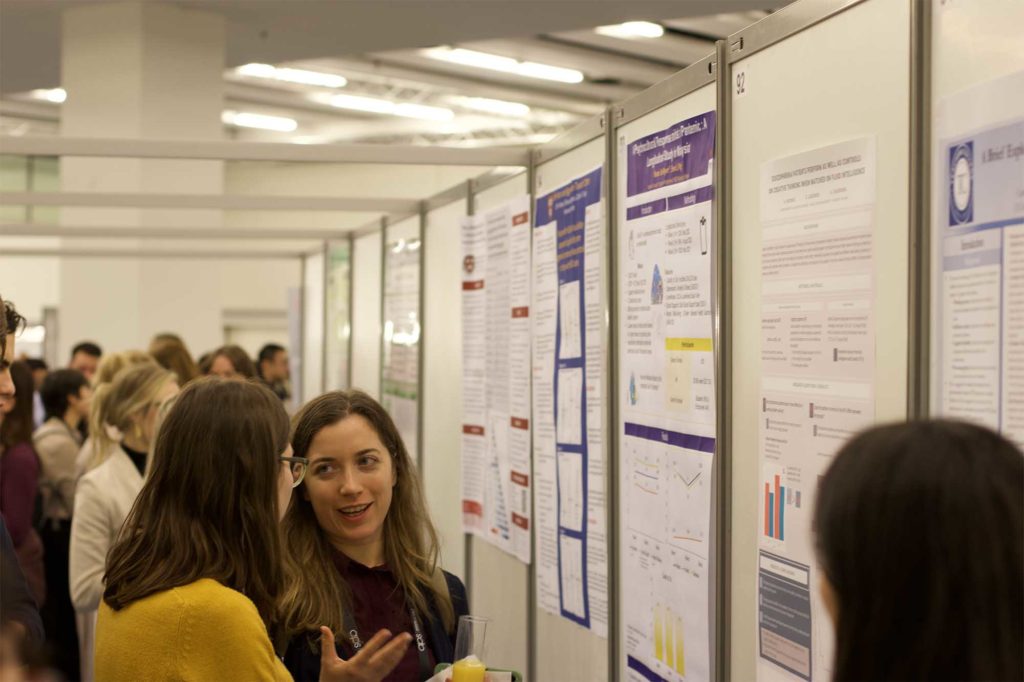In the ICPS 2023 opening keynote, Susan Michie (University College London) presented the Behaviour Change Intervention Ontology.
AI and algorithms, sustainability and climate anxiety, individual agency and group stereotypes, active learning and productive failure—and those are just a few of the topics covered in day one alone of the 2023 International Convention of Psychological Science, underway now in the historical and cultural heart of Brussels.
From March 9 to 11, the event brings more than 1,500 psychological scientists from at least 70 countries to share integrative research drawing from psychological science, neuroscience, genetics, sociology, economics, linguistics, and related fields to advance scientific progress and societal well-being.
ICPS 2023 is the Association for Psychological Science’s fourth global convention focused on integrative research. Designed to surmount artificial disciplinary boundaries that can impede scientific progress and to highlight areas of investigation in which those boundaries have already been overcome, ICPS was held for the first time in 2015 in Amsterdam, with subsequent events in Vienna (2017) and Paris (2019).

In all, ICPS 2023 comprises three keynote addresses, six integrated science symposia, and dozens of workshops, symposia, and poster presentations across multiple subdisciplines, along with opportunities to network professionally, learn new research methods, and build practical skills.
Prefacing ICPS 2023 Thursday morning was the Teaching Institute, cosponsored by the APS Fund for Teaching and Public Understanding of Psychological Science and the Society for the Teaching of Psychology. Manu Kapur, who directs the Future Learning Institute at ETH Zürich in Switzerland, kicked things off with insights on how, when, and why “productive failure” outperforms direct instruction in helping students learn novel concepts.
In other invited sessions and poster presentations, researchers discussed a wide variety of new research related to the teaching of psychology, including best practices for helping students identify misinformation and use self-control, new perspectives on disseminating psychological science via massive open online courses, and why student evaluations of teaching are “higher education’s highway to hell.”
The full ICPS program began Thursday afternoon with more than 30 sessions covering cutting-edge innovations (e.g., virtual reality-based mental health research), cross-cultural research (e.g., well-being and mental health around the world), and innovative methods and tools (e.g., for analyzing data from social networks). In one of the most popular sessions, attendees learned about advancements in person-centered methodologies in psychological research, chaired by Bart Wille (Ghent Universities) and Joeri Hofmans (Vrije Universiteit Brussel).

Thursday evening was highlighted by the opening of the exhibit hall, the first of nine poster sessions presented by students and other researchers, and the “official” opening keynote featuring Susan Michie, director of the Centre for Behaviour Change at University College London and a principal investigator on the Human Behaviour Change Project.
Introduced by APS President-Elect Wendy Wood (University of Southern California), Michie presented the Behaviour Change Intervention Ontology, an ambitious interdisciplinary collaboration within the project that leverages advances in natural language processing and machine learning to largely automate the process of collating, synthesizing, and interpreting evidence from the vast and growing literature on behavior change intervention evaluations.
“Human behavior is at the heart of so many global challenges involving behavior change,” Michie said, citing examples such as pandemics and climate change. “And human behavior is at the heart of preventing and getting out of them.” But the existing evidence can be “messy,” hamstrung by inconsistent reporting guidelines and other factors, which “means slow accumulation of knowledge, when we desperately need fast accumulation. What’s the point of churning out all this research if we’re not making use of it?”
Over the course of six years, this ambitious project has brought together dozens of researchers—in teams from behavioral science, computer science, and systems architecture—to synthesize and organize those complex data sets into useful scientific insights. “We need to unpack the reasons for heterogeneity in intervention effectiveness,” Michie said. “And we want to be able to generate new, testable hypotheses.”
Stay tuned for much more coverage of ICPS 2023. Follow events in real-time on Twitter—@PsychScience, hashtag #icps23.
Feedback on this article? Email apsobserver@psychologicalscience.org or login to comment. Interested in writing for us? Read our contributor guidelines.
